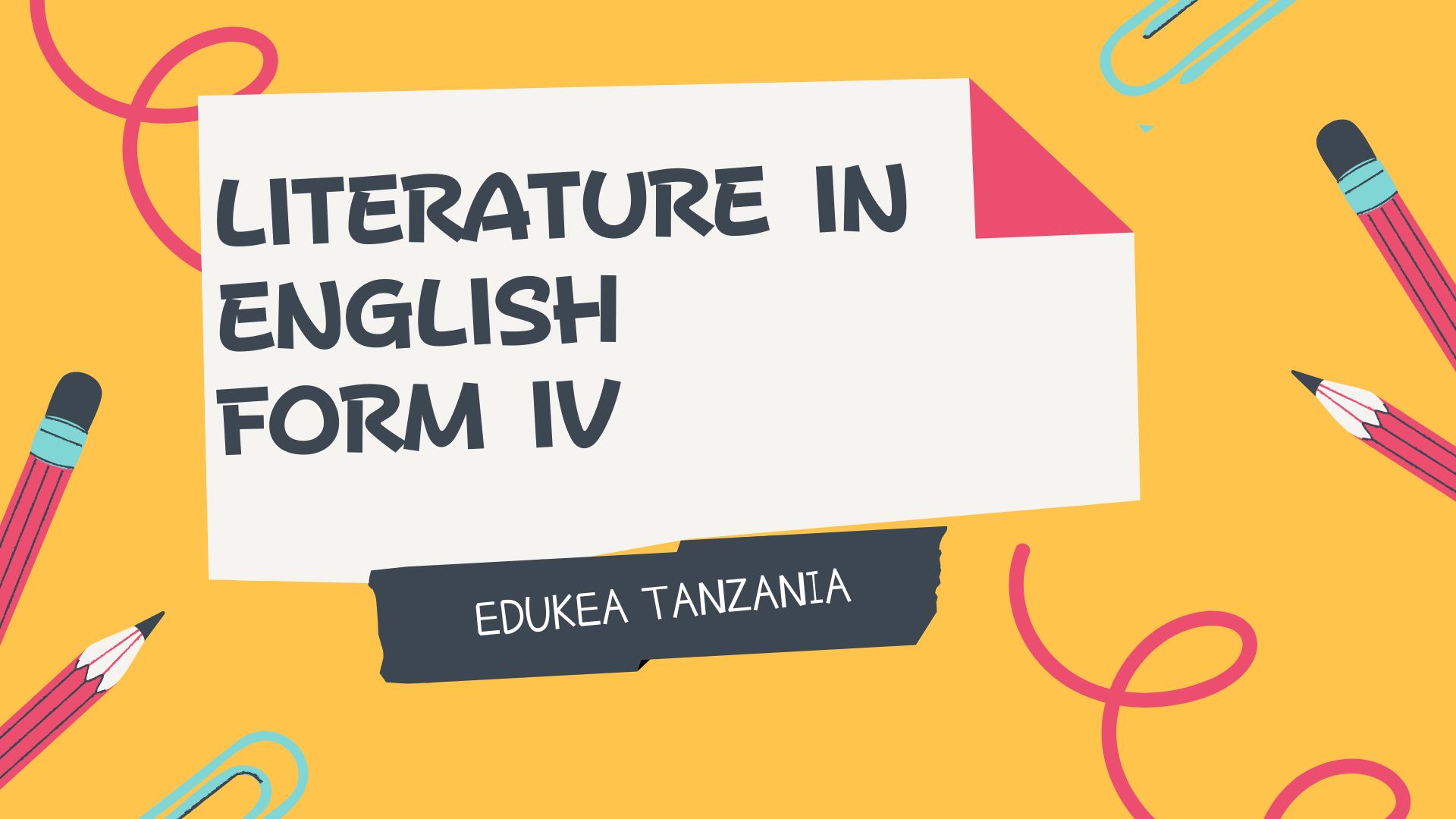The requirements for studying Literature in English in Form Four include:
-
Basic Literacy Skills: Students should have a strong foundation in reading, writing, and comprehension skills to engage with complex literary texts.
-
Interest and Motivation: Students should have a genuine interest in literature and a willingness to engage critically with various genres, authors, and themes.
-
Language Proficiency: Students should have a good command of the English language, including vocabulary, grammar, and comprehension skills, to effectively analyze and discuss literary texts.
-
Critical Thinking Skills: Students need to develop critical thinking skills to analyze and interpret literary texts, identify themes, motifs, and literary devices, and evaluate the author's purpose and perspective.
-
Reading Skills: Students should have the ability to read and comprehend a variety of literary texts, including novels, plays, poetry, and short stories, with guidance and support.
-
Writing Skills: Students should be able to express their ideas and insights about literature through writing, including analytical essays, literary critiques, and creative responses to texts.
-
Access to Resources: Students should have access to a range of literary texts, including novels, plays, poetry anthologies, and critical essays, as well as supplementary materials such as study guides and reference books.
-
Classroom Environment: A supportive and engaging classroom environment, led by a knowledgeable and enthusiastic teacher, is essential for fostering discussion, debate, and deeper understanding of literary texts.
By meeting these requirements and actively engaging with the study of literature, students can develop their analytical, communication, and critical thinking skills, as well as deepen their appreciation for literature as an art form.
In Form Four, Literature in English continues to deepen students' understanding and appreciation of literary texts. Here's a description of what students might study in Literature in English at this level:
-
Analysis of Literary Texts: Students delve into the analysis of various literary genres, including novels, plays, poetry, and short stories. They explore themes, characters, plot structures, and literary devices such as symbolism, imagery, and figurative language.
-
Novels and Prose Fiction: Students study selected novels or prose fiction works, analyzing their plot development, characterization, themes, and narrative techniques. They may explore works from different literary traditions and time periods.
-
Drama: Students analyze plays by renowned playwrights, focusing on elements such as dialogue, stage directions, characterization, and dramatic tension. They may also study the historical and cultural contexts in which the plays were written.
-
Poetry: Students study selected poems, analyzing their form, structure, language, and themes. They learn about different poetic devices and techniques, such as rhyme, meter, imagery, and symbolism.
-
Literary Criticism and Theory: Students are introduced to basic concepts of literary criticism and literary theory. They learn different approaches to analyzing literature, including formalist, structuralist, feminist, and postcolonial perspectives.
-
Contextual Studies: Students explore the social, cultural, and historical contexts in which literary works were produced. They examine how historical events, cultural movements, and societal norms influence literary texts and shape their meaning.
-
Comparative Studies: Students may engage in comparative studies, analyzing similarities and differences between literary works, authors, or literary movements. They develop critical thinking skills by examining connections and contrasts across texts.
-
Creative Writing: In some cases, students may have opportunities to engage in creative writing activities, such as writing poetry, short stories, or critical essays inspired by the literature they have studied.
Overall, Literature in English in Form Four aims to deepen students' understanding of literature as an art form, enhance their analytical and critical thinking skills, and foster a lifelong appreciation for literature and the power of storytelling.
